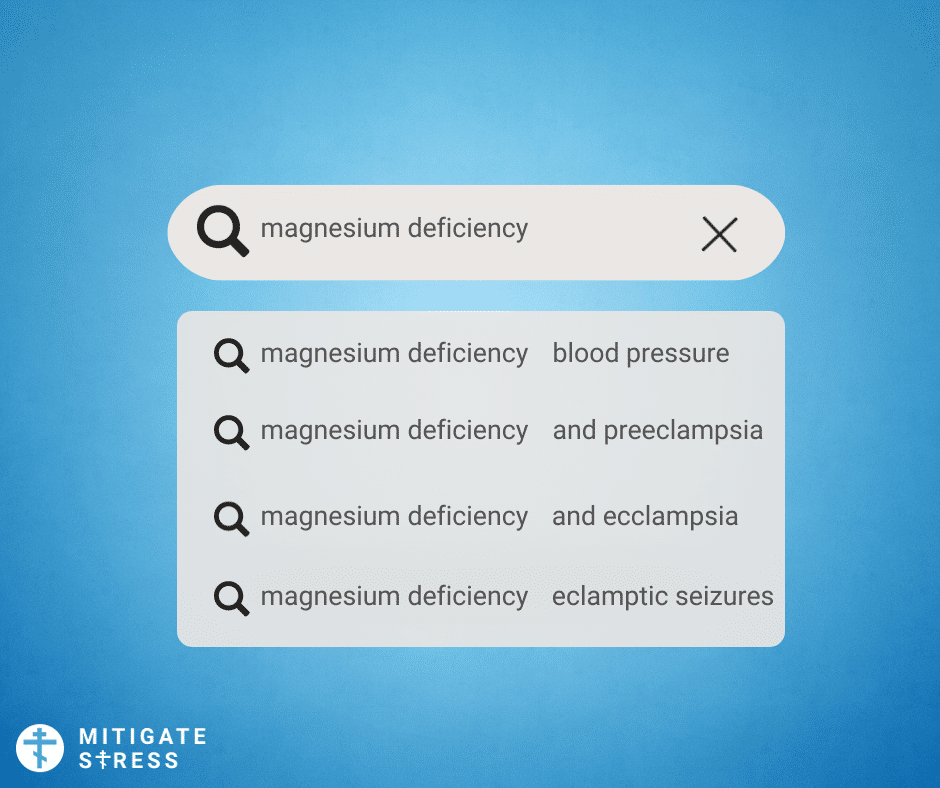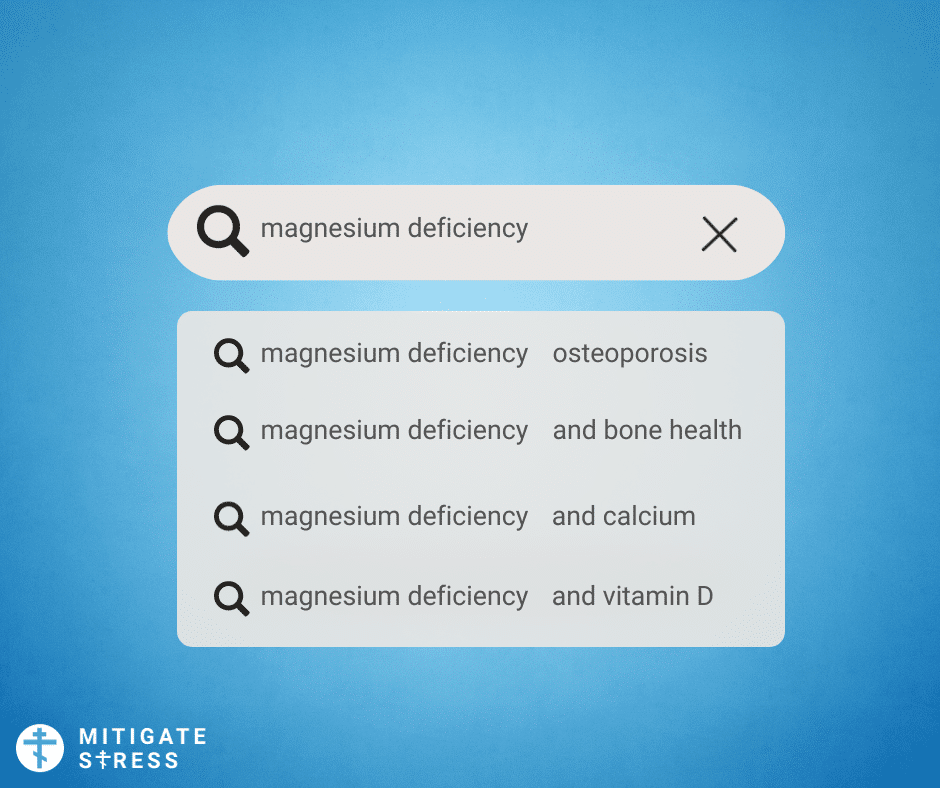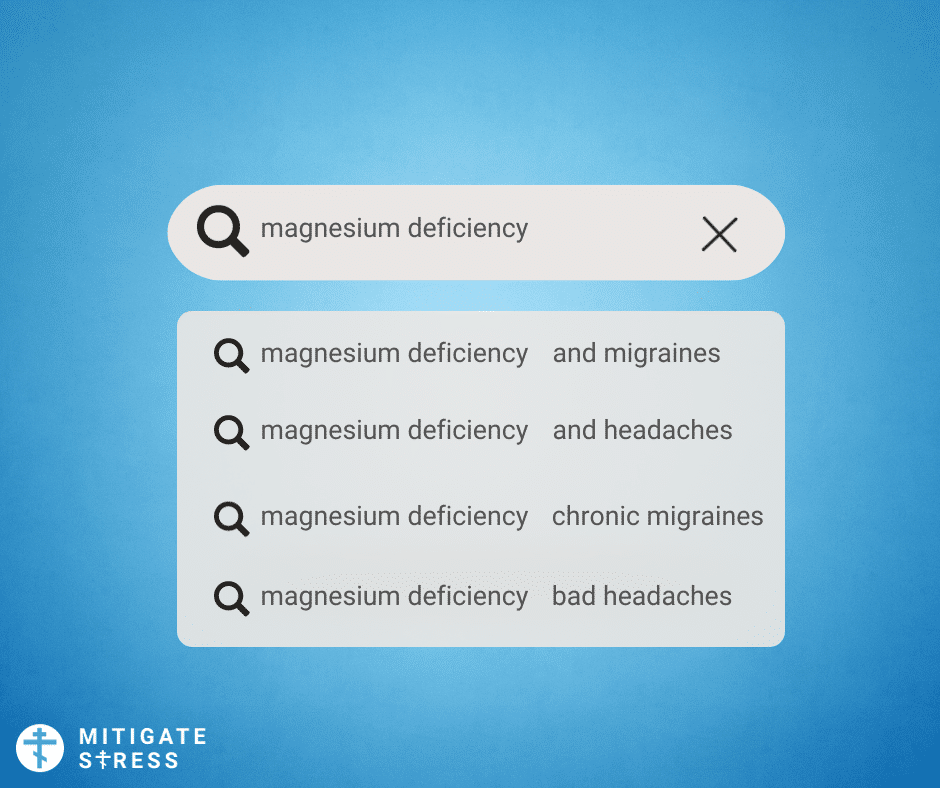Magnesium, an indispensable mineral, plays a crucial role in maintaining physiological balance. Intriguingly, scientific studies have linked magnesium deficiency with high blood pressure, preeclampsia, and eclampsia – conditions that often arise during pregnancy. However, despite the evidence and common use of magnesium in treating these conditions, serum magnesium levels are rarely part of routine testing. This article delves into this fascinating correlation, exploring the implications of magnesium deficiency and therapeutic potential of magnesium.
Magnesium’s Role in Blood Pressure Regulation
Magnesium plays a key role in regulating blood pressure1. A study published in Science.org found a correlation between magnesium deficiency and increased blood pressure2, suggesting that maintaining adequate magnesium levels could be critical for blood pressure regulation.
Preeclampsia, Eclampsia, and Magnesium Deficiency
Preeclampsia and eclampsia are pregnancy complications characterized by high blood pressure and damage to organ systems, most often the liver and kidneys3. Interestingly, research has found associations between these conditions and magnesium deficiency.
A study from ScienceDirect revealed a global impact of preeclampsia and eclampsia, which were found to associate closely with magnesium deficiency4. Furthermore, another study published in Springer found that abnormalities associated with preeclampsia were significantly linked to decreased magnesium levels5.
Treating Preeclampsia and Eclampsia with Magnesium
The therapeutic potential of magnesium in managing preeclampsia and eclampsia is well-documented. Magnesium sulfate is commonly used to prevent and control eclamptic seizures6. A study featured in Wiley Online Library discussed how magnesium sulfate was indicated for women with preeclampsia with severe features and for women with eclampsia7.
The Paradox of Magnesium Testing
Despite the clear connection between magnesium deficiency and these conditions, routine testing of serum magnesium levels is not common practice. This is an intriguing paradox, considering that magnesium’s role in these conditions is well-established.
Boosting Magnesium Levels
Recognizing the importance of maintaining adequate magnesium levels, it’s crucial to ensure a diet rich in magnesium or consider high-quality supplements. Our magnesium bicarbonate products and our topical magnesium oil are designed to support your body’s magnesium levels efficiently and effectively.
Magnesium Bicarbonate Products: Our magnesium bicarbonate products are designed with your health in mind. They are highly bioavailable, which means they can be easily absorbed by the body. Incorporating these products into your everyday routine can significantly boost your overall magnesium levels, thereby bolstering your muscle health.
Topical Magnesium Oil: Our topical magnesium oil offers another effective avenue for augmenting your magnesium levels. When applied directly to the skin, it allows for transdermal absorption, delivering magnesium directly to where it’s needed most.
However, always consult with a healthcare professional before beginning any supplement regimen.
Conclusion
The link between magnesium deficiency and high blood pressure, preeclampsia, and eclampsia is increasingly being recognized by scientific research. As we continue to understand the multifaceted role of magnesium in our bodies, the importance of maintaining optimal magnesium levels becomes even more apparent.
While our magnesium bicarbonate products and topical magnesium oil can help maintain these levels, they’re not a substitute for a balanced diet and regular medical check-ups. By staying informed and proactive about our health, we can ensure that our bodies receive the nutrients they need to function at their best.
Footnotes
- Magnesium and disturbances in carbohydrate metabolism
- Magnesium deficiency-induced spasms of umbilical vessels: relation to preeclampsia, hypertension, growth retardation
- Preeclampsia–eclampsia
- The global impact of pre-eclampsia and eclampsia
- The role of calcium, magnesium, and zinc in pre-eclampsia
- Severe pre-eclampsia and hypertensive crises
- Major changes in diagnosis and management of preeclampsia






0 Comments